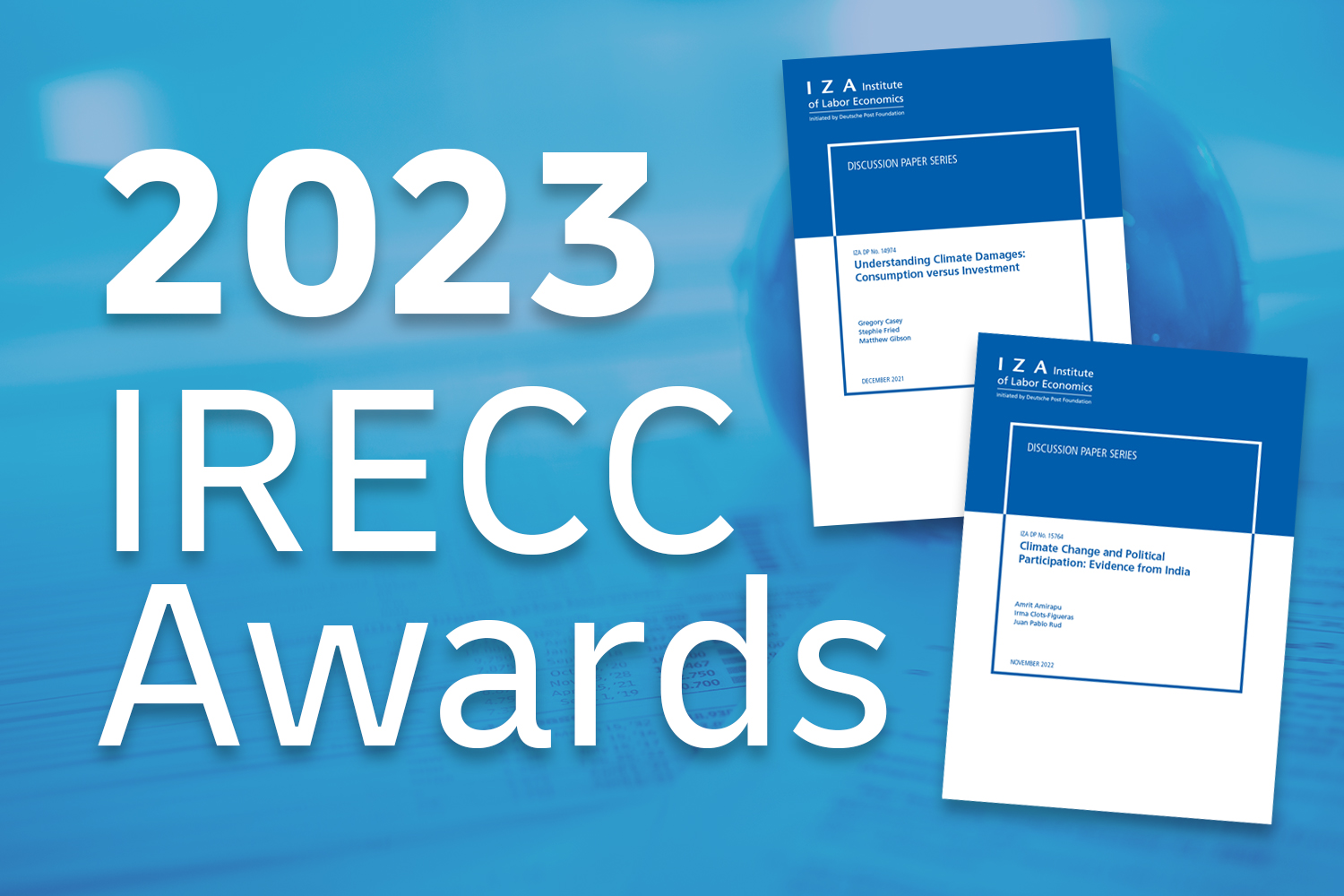To foster research into the nature and implications of climate change, IZA gives an award for “Innovative Research in the Economics of Climate Change” (IRECC) for the two best topical IZA Discussion Papers of the previous year. Worth 10,000 euros, the IRECC Award recognizes important new insights into the broader, often underestimated consequences of climate change and the effects of environmental policies on society and the labor market.
From papers published between December 2021 and December 2022, these two have been selected for the 2023 IRECC Award:
“Understanding Climate Damages: Consumption versus Investment” (IZA DP No. 14974) by Gregory Casey, Stephie Fried and Matthew Gibson shows that the welfare cost of climate change larger may be larger than currently estimated. The reason is that existing climate-economy models use aggregate damage functions to model the effects of climate change. This approach assumes climate change has equal impacts on the productivity of firms that produce consumption and investment goods or services. The authors show the split between damage to consumption and investment productivity matters for the dynamic consequences of climate change. Drawing on the structural transformation literature, they develop a framework that incorporates heterogeneous climate damages. When investment is more vulnerable to climate, short-run consumption losses will be smaller than leading models with aggregate damage functions suggest, but long-run consumption losses will be larger. The study quantifies these effects for the climate damage from heat stress and find that accounting for heterogeneous damages increases the welfare cost of climate change by approximately 4 to 24 percent, depending on the discount factor.
“Climate Change and Political Participation: Evidence from India” (IZA DP 15764) by Amrit Amirapu, Irma Clots-Figueras and Juan Pablo Rud provides new evidence about the ways in which political agents in developing countries (including both voters and candidates) may respond to climate change via political channels. The authors study the effects of extreme temperature shocks on political participation using data from Indian elections between 2009 and 2017. Taking advantage of localized, high-frequency data on land surface temperatures, they find that areas with greater cumulative exposure to extreme temperatures experience an increase in voter turnout and a change in the composition of the pool of candidates who stand for election. As a consequence, electoral outcomes are affected. The results are driven by the negative effect of climate change on agricultural productivity. First, the results are strongest in areas with a larger rural population. Second, there is a non-monotonic relationship between temperatures and turnout which closely mirrors the relationship between temperatures and agricultural productivity. Also, following temperature shocks, winning candidates are more likely to have an agricultural background. Finally, politicians with an agricultural background invest more in irrigation, which mitigates the effects of high temperatures, on both agricultural production and on turnout.
The IRECC winners “represent the best of modern applied-economics research,” according to the award committee made up of Susana Ferreira (University of Georgia) and Andrew Oswald (IZA and University of Warwick).
All climate-related IZA discussion papers submitted in 2023 will qualify for the second IRECC award, to be given in early 2024.
